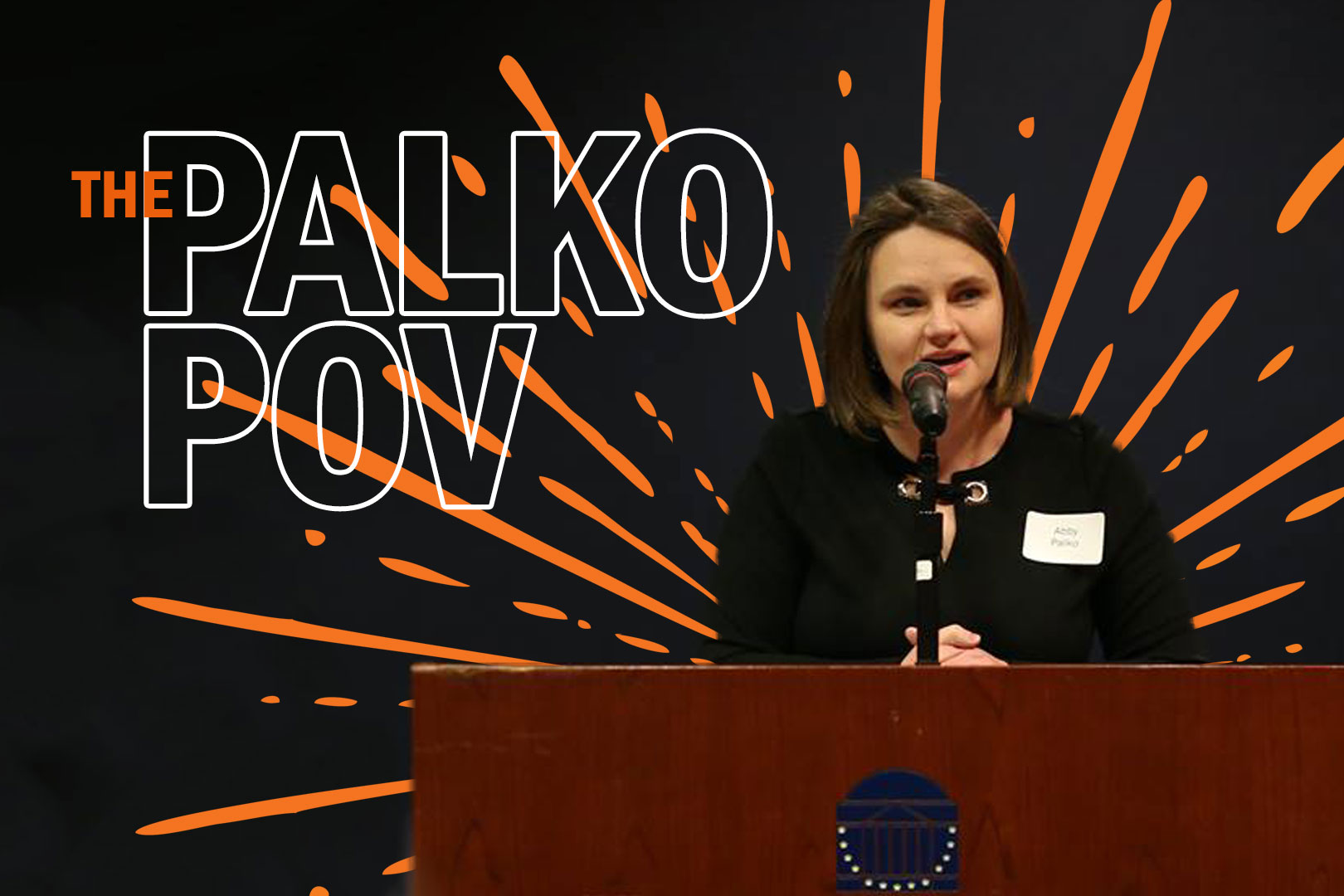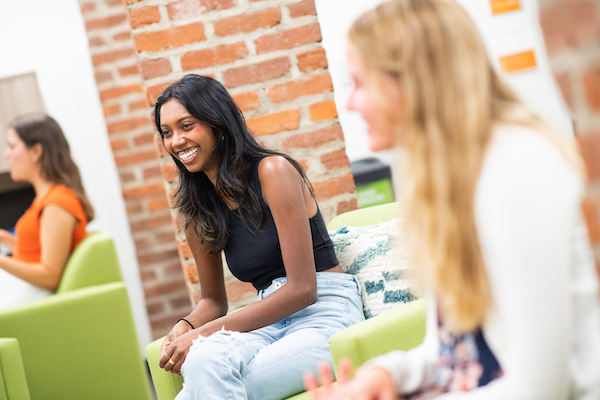
August 21 saw ‘Hoos gathering all over Grounds – reconnecting with friends, welcoming the Class of 2021, viewing the solar eclipse, and stepping into new roles for the 2017-2018 year. Among those who have committed to playing a leadership role in the University community this year are 74 undergraduate men and women working with us to mentor local middle school boys and girls and 27 interning with members of our staff at the Women’s Center. We are committed to developing strong women leaders and those who will work beside them to bring about social justice. They will be the leaders that our world needs.
Our whole staff spent that Monday morning with this year’s cohort of Women’s Center interns. I reminded staff and students alike that no one is powerless in the face of injustice. And I shared with the students our belief that they will find purpose in their work here at the Women’s Center just as our staff members do. Our session also included the Lynn family’s hopes for our students as offered by Julie Lynn (CLAS ’88, Law ‘92) at the Women’s Center’s 25th Anniversary and renaming ceremony in recognition of her mother’s gift to the Women’s Center.
Julie talked about the “great need for a Center like this” in a world in which men and women are different, and some women suffer because of the difference. She described her family’s support for the center as a challenge: “Get to work. There’s a lot that needs to happen … write a book or make a movie. Heal a person. Heal the environment. Teach someone something. Start a movement. Do it while you’re here. And then do it again when you graduate. And when you finish your life’s professional work, do it again in “retirement.” Keep choosing at every stage of your life to challenge yourselves to make the world a different and better place for men and for women. All of you can be part of a more peaceful and a more advanced world. That work starts here, in education, whether you are doing the educating or being educated — and those two constantly intertwine.”
At the end of April, I had the great pleasure to meet our eponymous Max, Maxine Platzer Lynn. Max arrived on Grounds seventy years ago, transferring as a 2nd year into the Curry Department of Education (as the Curry School was then known) to finish her BA after moving to Charlottesville as a newlywed. This move took perseverance on her part. Fifty years before women gained access to the College of Arts and Sciences on a equal basis, the University had cracked open a backdoor. In 1920, the Board of Visitors passed a resolution to allow women to attend the professional and graduate schools if they were at least 20 years of age at the time of their enrollment and if they had completed at least two years of undergraduate study elsewhere. Not yet 20 and not wanting to wait, Max petitioned the board for a waiver of the requirements. This appeal required an in-person appearance and, having met her, I’m not at all surprised that her petition was successful. Three years later, in 1951, Max completed her degree. An interesting footnote: In 1951, UVA President Colgate Darden dissolved the age requirement for enrollment. A coincidence of timing?
When I visited Max in Los Angeles, we lunched at a favorite restaurant of hers. Over the course of our far-ranging conversation, I was struck by her passion for life and good food, her enthusiasm for insightful conversation about politics and culture, her deep affection for and pride in her children and grandchildren. Throughout, she paid careful attention to those who are not in the spotlight and expressed her pleasure at being able to sustain us in our work to support them.
Girls and women have often needed great tenacity in order to pursue an education on par with that of the men in their lives. For every Malala who receives global congratulations for her acceptance to Oxford, another 130 million girls are not in school. From the vantage point of the industrialized world, the answer often looks deceptively simple. But Western assessments of educational structures in developing nations too often miss important factors impacting girls’ access to school. One of the most valuable things students gain through working with the Women’s Center is a nuanced understanding of complex global issues. Max and I discussed the importance of education and the varied ways that the Women’s Center strengthens girls’ access to educational opportunities. Our counseling services empower our clients to flourish fully in their UVA years, and our Young Women Leaders Program gives girls in Charlottesville and in towns around the US and the world the support network they need to set and pursue their own goals.
Max’s gift to us is far more than financial support: she offers an inspirational example of grit and of enthusiastic engagement with learning throughout every stage of life. All of us at the Women’s Center are energized in our work by her example even while we are rewarded to see our students develop these same strengths and leave us more firmly committed to bringing about equity for all.

